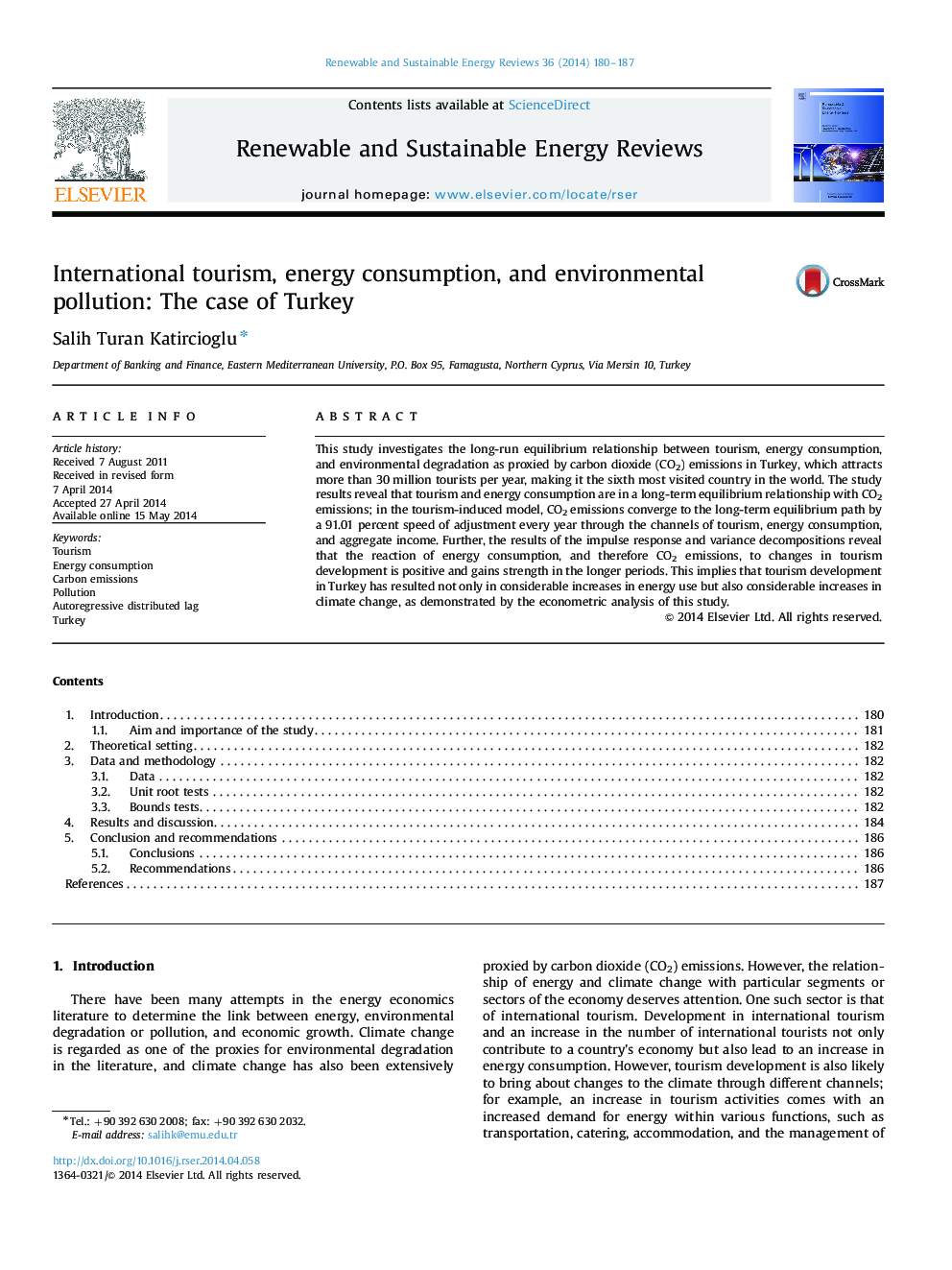| Article ID | Journal | Published Year | Pages | File Type |
|---|---|---|---|---|
| 1750336 | Renewable and Sustainable Energy Reviews | 2014 | 8 Pages |
This study investigates the long-run equilibrium relationship between tourism, energy consumption, and environmental degradation as proxied by carbon dioxide (CO2) emissions in Turkey, which attracts more than 30 million tourists per year, making it the sixth most visited country in the world. The study results reveal that tourism and energy consumption are in a long-term equilibrium relationship with CO2 emissions; in the tourism-induced model, CO2 emissions converge to the long-term equilibrium path by a 91.01 percent speed of adjustment every year through the channels of tourism, energy consumption, and aggregate income. Further, the results of the impulse response and variance decompositions reveal that the reaction of energy consumption, and therefore CO2 emissions, to changes in tourism development is positive and gains strength in the longer periods. This implies that tourism development in Turkey has resulted not only in considerable increases in energy use but also considerable increases in climate change, as demonstrated by the econometric analysis of this study.
